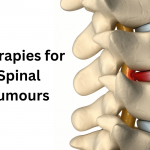
Do you have an aging parent or grandparent who is slowly losing their memory? If so, you may feel overwhelmed with sadness and frustration. It can be heartbreaking to watch a beloved family member struggle with something that’s out of their control.
But don’t lose hope! There are many ways to help loved ones manage their memory loss and make the most of their remaining years. This article explores the different types of memory loss, as well as strategies for dealing with these changes.
Types of Memory Loss
The most common type of memory loss in older adults is dementia. Dementia is an umbrella term that describes a wide variety of cognitive decline including Alzheimer’s disease and vascular dementia. Symptoms can range from mild forgetfulness to severe confusion and disorientation.
Another type of memory loss is caused by a medical condition or drug interaction. Conditions like stroke, diabetes, depression, Parkinson’s disease, and thyroid problems can all contribute to cognitive decline. Medications for high blood pressure, cholesterol, anti-anxiety drugs, antidepressants, and sleeping pills can also cause memory issues.

Coping Strategies
The best way to help your loved one manage their memory loss is through understanding and patience. Here are a few tips for making life easier:
- Make sure that the environment they’re in is safe and supportive. Keep items like medications, sharp objects, and money out of reach.
- Establish routines and see if they can help jog the memory. For example, create a daily routine for eating meals or taking medications at certain times of day.
- Allow extra time for tasks that may take longer because of confusion.
- Encourage your loved one to stay socially active. Joining clubs, attending religious services, and going on outings with friends can help keep the mind sharp.
- Consider joining support groups or utilizing local resources like Alzheimer’s care in Rockville for guidance and emotional support.
Seeking Professional Support and Resource
When dealing with memory loss, it’s important to seek professional help. A doctor can diagnose and rule out medical conditions that may be causing the issue. They can also guide how to manage the condition and provide referrals to other professionals who specialize in Alzheimer’s care in Rockville or nearby areas.
It’s also helpful to seek support from local organizations that specialize in dementia care. These groups can provide information and resources about memory loss, treatments, medication management, and other helpful strategies. They often host educational workshops or support group meetings for caregivers.
Taking Care of Yourself
It’s also important to take care of yourself when dealing with a loved one with memory loss. It can be emotionally and physically draining to constantly worry about their safety and well-being. Make sure you take time for yourself to decompress, be with friends, or engage in activities that bring you joy.
Start by helping your loved one feel secure and comfortable. Then reach out to the community for assistance and lend an ear to others who are dealing with similar issues. Together, you can make life easier for everyone involved, even if it’s just a little bit at a time.
Finally, don’t forget that memory loss doesn’t define your loved one. They are still the person that you know and love, no matter how much their memory has faded. Spend time talking to them about their favorite stories or memories from the past, and savor every moment with them while they’re here. Don’t rush through the goodbye; instead, slow down and treasure each moment as if it were your last.
You can help your loved one make the most of their remaining years, no matter how much memory they’ve lost. With understanding and patience, you can ensure that their last days are filled with love and joy.









